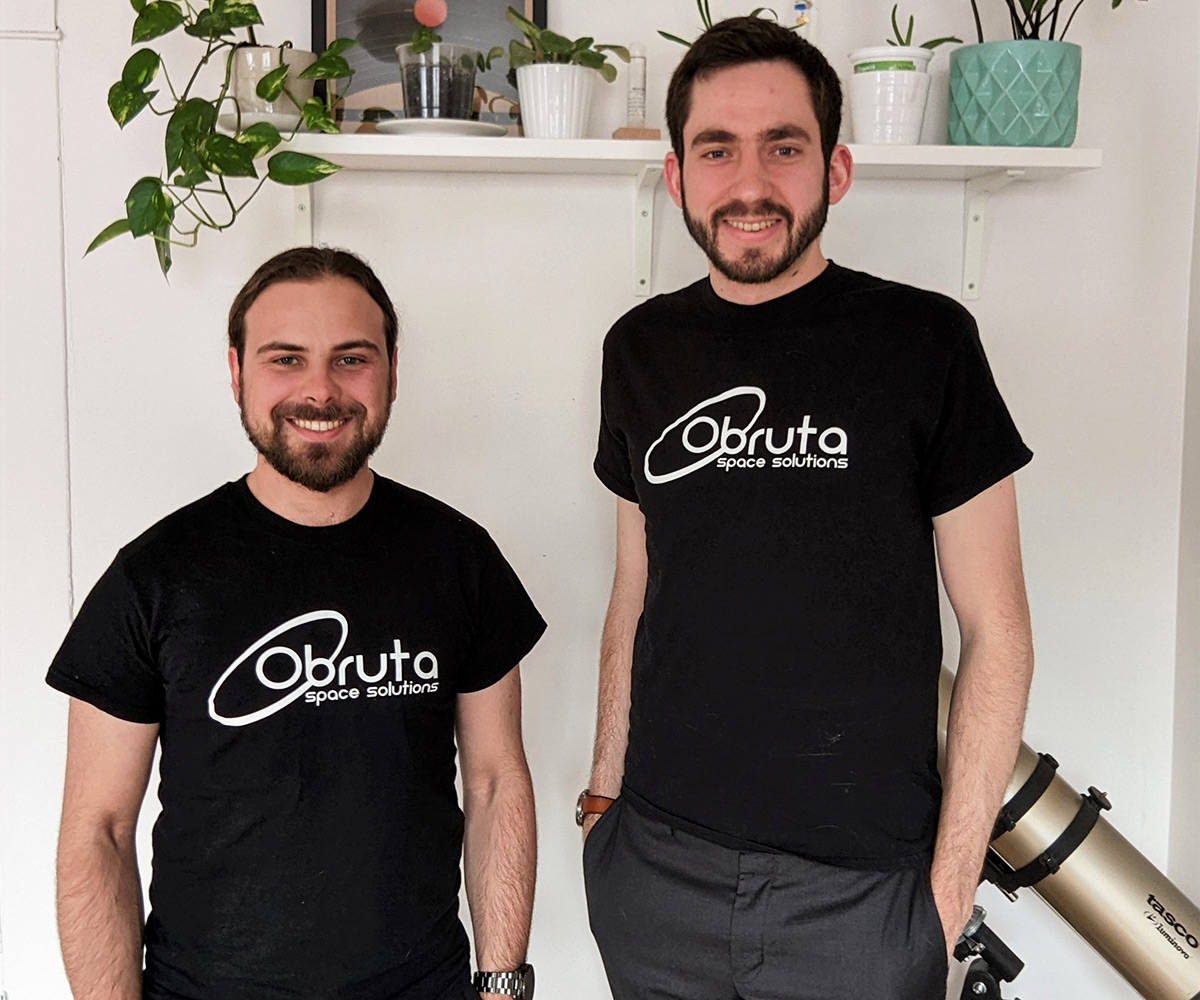Docking one spacecraft to another is a very challenging procedure, which is why a pair of Carleton University engineering graduates started Obruta Space Solutions, an Ottawa-based company whose goal is to simplify the process of servicing a spacecraft.
“Right now, we’re seeing a transition away from single-use spacecraft,” says Kevin Stadnyk, who earned master’s and undergraduate degrees in Mechanical and Aerospace Engineering from Carleton and co-founded Obruta with Kirk Hovell, who has three degrees, including a PhD, from the same program.
“A lot of companies are getting into this industry to do in-orbit refuelling and repairs. They need spacecraft to communicate with and physically link to each other, and that’s really difficult.”

Obruta is the Latin word for debris, which is the space challenge that Stadnyk and Hovell planned to tackle when they established their company on July 20, 2019—the 50th anniversary of the first moon landing. Even though the two grew up 10 minutes away from one another in Nova Scotia, they met and began collaborating in Carleton engineering researcher Steve Ulrich‘s Spacecraft Robotics and Control Laboratory.
Despite early success in a couple of space entrepreneurship competitions and a contract from the Canadian Space Agency to study debris removal technology with an eye toward commercialization, Obruta shifted to its current focus.
Beyond telecommunications, which encompasses everything from the business and finance sectors to entertainment, satellites have become indispensable for navigation systems such as GPS, climate and environmental modelling, weather forecasting and land stewardship, and for monitoring things such as wildfires, oil spills and marine traffic. Satellites make us safer and, even if we don’t realize it, are part of our everyday lives.
“The problem, however, is that they’re typically launched with one big tank of fuel, and they need that fuel to stay in orbit, otherwise the residual atmosphere will slow down a spacecraft and cause it to spiral back toward Earth and burn up,” explains Hovell.
“When their fuel runs out, they die, even if everything else is totally fine. That’s how we’ve been working in space for 60 years.”
Moreover, with the International Space Station scheduled to retire in 2031, five new space stations are in development, as are several orbital platforms where spacecraft will be able dock to exchange crews or cargo.
A Docking Kit for Spacecraft
All of this had led to Obruta’s first product, the Rendezvous, Proximity Operations and Docking (RPOD) Kit. It includes both hardware—such as cameras so spacecraft can see one another and know, for example, precisely when to fire the thrusters—and software, including algorithms that plan the trajectories so they can autonomously manoeuvre.
“We can make things easier for a lot of companies by supplying a technology that’s not available on the commercial market,” says Hovell. “If we remove the need for them to do this in-house, it’ll save them R&D time and allow them to focus on their core operations.”
Four clients have already signed on to buy 17 RPOD Kits for their eventual spacecraft, and Obruta is expecting more business from other satellite servicing and orbital logistics companies.
“There’s also the ‘last mile’ problem,” says Stadnyk.
“Today’s rockets blast off into space with a satellite, but they sometimes also carry additional satellites that aren’t going where the main customer is going. A last-mile transport vehicle will separate from a rocket once it’s in space and fly around as a separate entity, deploying satellites into customized orbits.
“There will be value for customers to have spacecraft that can remain in orbit and dock with various vessels, so they don’t have to launch new rockets that often, which is more sustainable and efficient than making a new spacecraft for every single mission. We’re developing a mission critical technology and lowering the barrier to entry to help the entire space economy thrive.”
“There’s a saying,” adds Hovell, “that in 20 to 30 years, every company will be a space company, because space is becoming so ingrained into our daily lives.
“We’re at an inflection point right now, and safe and reliable autonomous docking is one of the technologies that the industry is racing to develop. The market is growing and although it’s early, we’re looking at a promising future.”